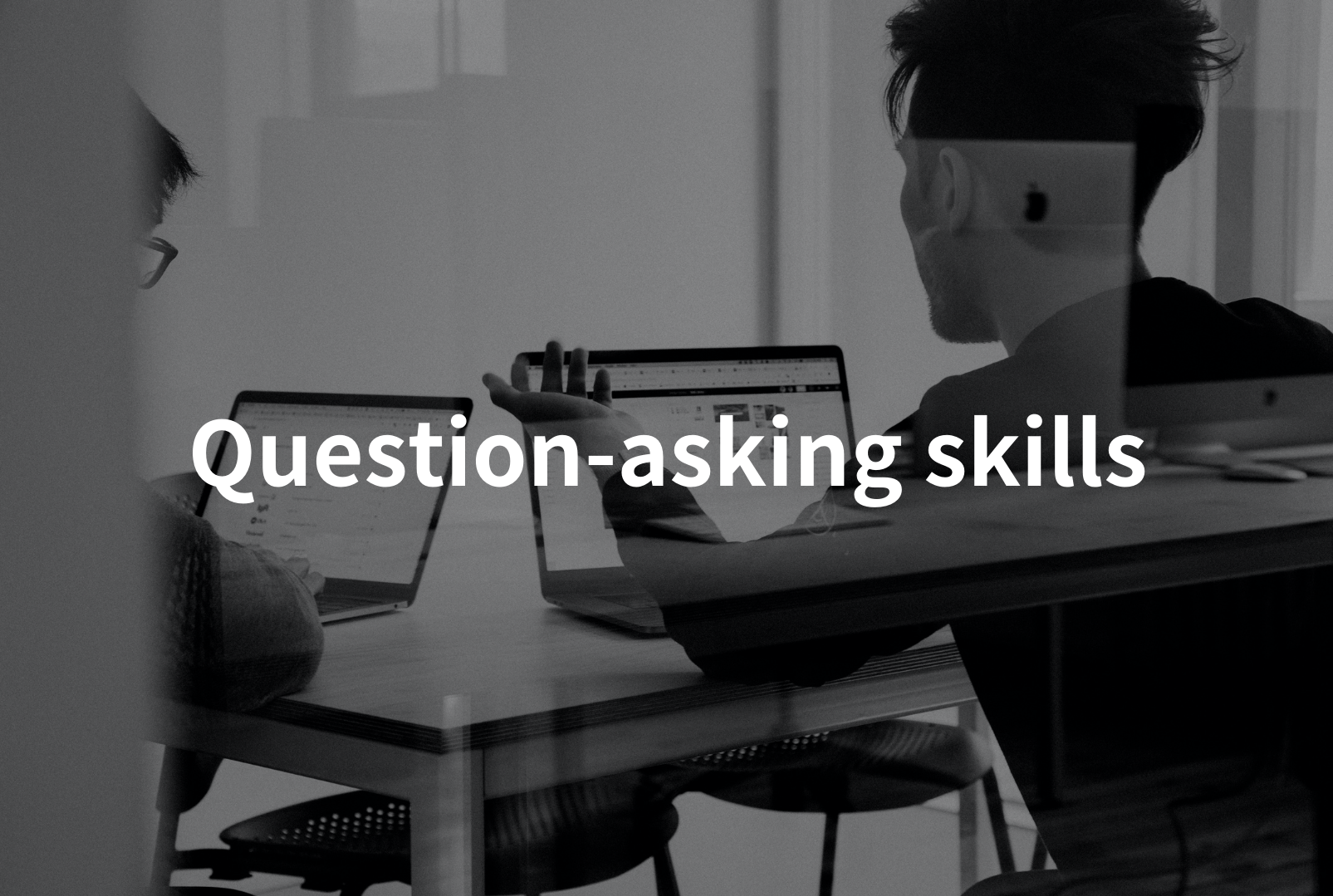
Thank you for reading my blog.
Some of you may be thinking,
“I don’t feel like asking questions to a busy boss.”
“I don’t want to ask questions because it might make me sound like an incompetent person.”
“I want to know how to ask questions well.”
In fact, questions can increase your reputation and credibility, depending on how you ask them.
That is why this article is about 5 key points on how to ask questions that no one teaches you.
By reading this article, you will learn
- Five key points of questioning to improve your reputation that no one will tell you
- Specific examples of direct verbal questions
- Specific examples of questions to ask in writing (e.g., email, chat)
By practicing these points, you will not be afraid to ask questions, and you will be able to ask appropriate questions and increase your reputation and credibility.
Let’s check it out.
Five key points of questioning to improve your reputation that no one will tell you

The five key points to improve the evaluation are as follows.
- Put yourself in the shoes of the person being asked the question.
- Before asking a question, clarify how much you understand and what you do not understand.
- After sharing your thoughts and opinions, ask for your supervisor’s opinion.
- Consider the timing of your questions.
- Be sure to express your appreciation at the end.
Let us now review the contents of each.
▪Put yourself in the shoes of the person being asked the question.
Putting yourself in the other person’s shoes is a fundamental and most important point in all communication, not just questions.
Please get into the habit of thinking about what the other person would think if you said this about this content.
If you do not have this point in mind, you will not get much out of reading what follows.
Be sure to put yourself in the other person’s shoes, not only in your questions, but also in your professional and personal life.
▪Before asking a question, clarify how much you understand and what you do not understand.
Do your own research and find out what you can before asking questions.
Google what you can find out.
If someone asks you a question about something you can find out, you will probably feel negative and wonder why they are asking you if you can find out by looking it up.
If you can find out what you need to know by looking it up yourself, don’t waste the other person’s time.
If you can’t find out what you need to know, then you have to ask questions.
In that case, before asking the question, make sure to clarify your understanding.
How much do you know?
What do you not understand and what do you not understand?
Do not ask questions immediately after you feel you do not understand, but rather, summarize what you do not understand in your mind before asking questions.
▪After sharing your thoughts and opinions, ask for your supervisor’s opinion.
“What should I do?” should be avoided as much as possible.
You should try to explain your own thoughts in a way that you do not understand.
For example,
“I think there are three options for XXX, A, B, and C, and I think A is better for YYYY reasons.”
If you ask “What should I do?” for everything, your existence is worthless, and the person who is asked this question will think that you should think for yourself.
This will not improve your reputation.
You can improve your reputation by asking questions that come from proper thinking, and by providing evidence of your thinking.
▪Consider the timing of your questions.
Try to ask questions when it is convenient for them or when they are in a good mood.
Some recommended timings are
- in the afternoon after lunch
- before a holiday such as Friday
- when he/she starts talking to you.
- when the person on the other end talks to you.
It is best to refrain from doing so first thing in the morning, before a meeting, or when you are busy.
Of course, if the matter is urgent or high priority, you should tell your boss as soon as possible without worrying about his/her situation.
▪Be sure to express your appreciation at the end.
In all communication, not just questions, be sure to express your appreciation.
The person you are thanking should feel better.
By making them feel good at the end of your communication, they will feel good when they talk to you, which will increase their trust in you and your reputation.
Now, based on these five basics, let’s review the following two patterns, with specific examples in the next part.
- Asking questions verbally and directly
- Asking questions in writing (chat, e-mail, etc.)
How to ask questions when asking directly and orally

I have created a specific example of a situation in which you have a question for your supervisor in the task of creating presentation materials for your assignment.
▪example
“Mr. XXX, thank you for your hard work. I’m sorry to bother you at your busy time.”
“I would like to confirm one point about the presentation material preparation task that I am in charge of.”
“I can’t decide which is better for this presentation, draft A, which describes the XXX part in a simple and easy-to-understand manner, or draft B, which includes detailed information.”
“I think that draft A is preferable for this presentation, but do you have any opinions as to which one is better?”
I would appreciate another review when the task is complete.”
“Thank you for your time.”
Depending on the relationship, some of these may be too polite, but in the early days when the relationship with the other party is tenuous, the more polite the better.
How to ask questions when asking questions in writing, such as by email, chat, etc.

The following is a specific example of a written question, using the same example as the verbal question above.
The following is a specific example of a written question, using the same example as the verbal question above.
▪example
“Mr. XXX.
Thank you for your hard work.
I am contacting you to confirm one point about the task of creating presentation materials for which I am in charge.
I would like to ask you whether you prefer Draft A or Draft B below for the XXX part.
Proposal A: Provide a clear and concise description.
Proposal B: Include detailed information
Both A and B drafts are attached to this e-mail, so please check them.
I think Draft A is preferable for this presentation, but I wonder if you have any opinions as to which is better.
I am sorry to bother you, but I would appreciate a reply by the end of the day.
Thank you.”
So far, we have described specific examples in two patterns: verbal and written.
Of course, the above are only examples. Depending on your relationship with the other party, you will need to adjust your choice of words.
While referring to the aforementioned five basics, no matter what the relationship, do not forget to show consideration for the other person and to thank him or her.
This alone will make a big difference in impressions of you.
–Postscript–
In this article, I have summarized how to ask questions, one of the most important communication skills.
With the help of the five basics and two specific examples of verbal and written patterns, try changing the way you ask questions today.
Let me conclude with a few words from Tolstoy.
A humble person is liked by everyone. So why don’t we try to be humble people?
Thank you again for reading to the end of this article.
See you in my next post!



Comments